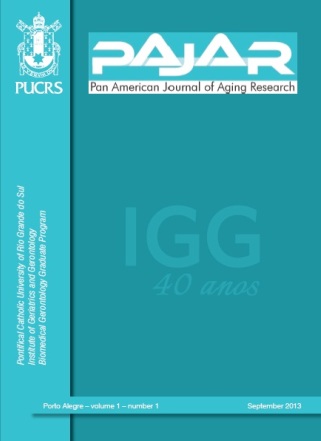Early versus late-onset major depression in the elderly: a comparative study
Palavras-chave:
Depression Major depressive disorder Elderly Depressive symptoms MelancholiaResumo
Aims: This study aims to investigate the distinctive characteristics between elderly with early-onset and late-onset major depression with respect to sociodemographic factors, self-perceived health, cardiovascular risk factors, MMSE scores, family history of depression, depressive symptoms, melancholic features, suicide risk and alcohol abuse/dependence.
Methods: Cross-sectional, descriptive and analytic study, with prospective data collection, in an random sample of 348 elderly people (≥60 years old) of the Family Heath Strategy, of which were identified 90 cases of DSM-IV unipolar major depression; subjects were divided according to early or late (≥60) age at onset of depression.
Results: The prevalence of major depression in the whole sample was 25.86%. The elderly subjects with depression were mainly of early-onset (69.14%) and female (74.4%); the mean age in years was higher in the late-onset major depression group (p=0.028); the groups did not differ with respect to the other factors; after multivariate analysis there was a trend toward a negative association between suicide risk and late-onset depression.
Conclusion: The early or late age at onset of depressive symptoms was not associated with different profiles. The results of this paper give support to the hypothesis that early-and late-onset major depressive disorders are clinically undistinguishable and do not represent distinct pathologies or subtypes.
Downloads
Downloads
Como Citar
Edição
Seção
Licença
Direitos Autorais
A submissão de originais para a PAJAR implica na transferência, pelos autores, dos direitos de publicação. Os direitos autorais para os artigos publicados nesta revista são do autor, com direitos da revista sobre a primeira publicação. Os autores somente poderão utilizar os mesmos resultados em outras publicações indicando claramente a PAJAR como o meio da publicação original.
Licença Creative Commons
Exceto onde especificado diferentemente, aplicam-se à matéria publicada neste periódico os termos de uma licença Creative Commons Atribuição 4.0 Internacional, que permite o uso irrestrito, a distribuição e a reprodução em qualquer meio desde que a publicação original seja corretamente citada.






